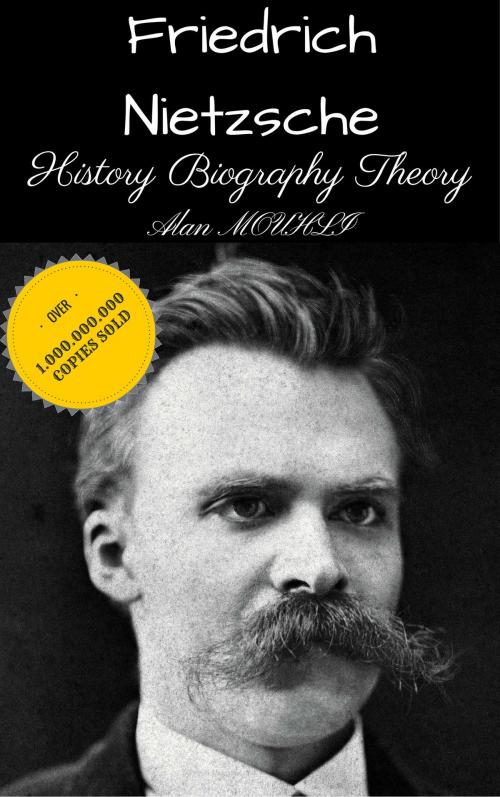| Author: | Alan MOUHLI | ISBN: | 1230001072341 |
| Publisher: | Alan MOUHLI | Publication: | May 9, 2016 |
| Imprint: | Language: | English |
| Author: | Alan MOUHLI |
| ISBN: | 1230001072341 |
| Publisher: | Alan MOUHLI |
| Publication: | May 9, 2016 |
| Imprint: | |
| Language: | English |
Nietzsche's body of writing spanned philosophical polemics, poetry, cultural criticism, and fiction, and drew widely on art, philology, history, religion, and science. His writing displayed a fondness for aphorism and irony while engaging with a wide range of subjects including morality, aesthetics, tragedy, epistemology, atheism, and consciousness. Some prominent elements of his philosophy include his radical critique of reason and truth in favor of perspectivism; his notion of the Apollonian and Dionysian; his genealogical critique of religion and Christian morality, and his related theory of master-slave morality;] his aesthetic affirmation of existence in response to the "death of God" and the profound crisis of nihilism; and his characterization of the human subject as the expression of competing wills, collectively understood as the will to power. In his later work, he developed influential concepts such as the Übermensch and the doctrine of eternal recurrence, and became increasingly preoccupied with the creative powers of the individual to overcome social, cultural, and moral contexts in pursuit of aesthetic health.
After his death, Elisabeth Förster-Nietzsche became the curator and editor of her brother's manuscripts, reworking Nietzsche's unpublished writings to fit her own German nationalist ideology while often contradicting or obfuscating his stated opinions, which were explicitly opposed to antisemitism and nationalism. Through her published editions, Nietzsche's work became associated with fascism and Nazism; 20th-century scholars contested this interpretation of his work and corrected editions of his writings were soon made available. His thought enjoyed renewed popularity in the 1960s, and his ideas have since had a profound impact on twentieth and early-twenty-first century thinkers across philosophy—especially in schools of continental philosophy such as existentialism, postmodernism, and post-structuralism—as well as art, literature, psychology, politics, and popular culture.
Nietzsche's body of writing spanned philosophical polemics, poetry, cultural criticism, and fiction, and drew widely on art, philology, history, religion, and science. His writing displayed a fondness for aphorism and irony while engaging with a wide range of subjects including morality, aesthetics, tragedy, epistemology, atheism, and consciousness. Some prominent elements of his philosophy include his radical critique of reason and truth in favor of perspectivism; his notion of the Apollonian and Dionysian; his genealogical critique of religion and Christian morality, and his related theory of master-slave morality;] his aesthetic affirmation of existence in response to the "death of God" and the profound crisis of nihilism; and his characterization of the human subject as the expression of competing wills, collectively understood as the will to power. In his later work, he developed influential concepts such as the Übermensch and the doctrine of eternal recurrence, and became increasingly preoccupied with the creative powers of the individual to overcome social, cultural, and moral contexts in pursuit of aesthetic health.
After his death, Elisabeth Förster-Nietzsche became the curator and editor of her brother's manuscripts, reworking Nietzsche's unpublished writings to fit her own German nationalist ideology while often contradicting or obfuscating his stated opinions, which were explicitly opposed to antisemitism and nationalism. Through her published editions, Nietzsche's work became associated with fascism and Nazism; 20th-century scholars contested this interpretation of his work and corrected editions of his writings were soon made available. His thought enjoyed renewed popularity in the 1960s, and his ideas have since had a profound impact on twentieth and early-twenty-first century thinkers across philosophy—especially in schools of continental philosophy such as existentialism, postmodernism, and post-structuralism—as well as art, literature, psychology, politics, and popular culture.















